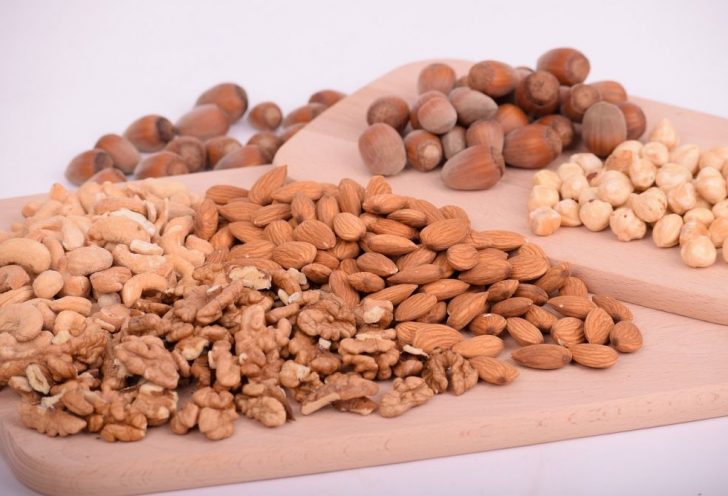PCOS Diet: A Comprehensive Guide for Managing Polycystic Ovary Syndrome

Introduction
Polycystic Ovary Syndrome (PCOS) is a hormonal disorder that affects women of reproductive age. Along with irregular periods and cysts in the ovaries, PCOS often leads to weight gain, insulin resistance, and difficulty in managing blood sugar levels. A well-planned diet can play a significant role in managing PCOS symptoms and improving overall health. In this article, we will provide an in-depth exploration of the PCOS diet, including its various types, popular choices, and the historical advantages and disadvantages associated with them.
I. A Comprehensive Overview of the PCOS Diet

The PCOS diet is a specially tailored eating plan that focuses on balancing hormones, managing insulin resistance, and maintaining a healthy weight. Its primary goal is to alleviate PCOS symptoms and improve fertility. This diet typically emphasizes nutrient-dense foods, limits inflammatory ingredients, and promotes regular physical activity. By following the PCOS diet, women can have better control over their hormonal imbalances and enhance their overall quality of life.
II. Types and Popularity of the PCOS Diet
There are several variations of the PCOS diet, each with its unique approach to managing the condition. Some of the most popular types include:
1. Low Glycemic Index (GI) Diet: This diet encourages consumption of low GI foods, which release sugar into the bloodstream at a slower rate, preventing blood sugar spikes and insulin resistance.
2. Mediterranean Diet: Inspired by the traditional dietary patterns of Mediterranean regions, this diet focuses on consuming fruits, vegetables, whole grains, lean proteins, and healthy fats, reducing the risk of insulin resistance and inflammation.
3. Anti-Inflammatory Diet: By avoiding pro-inflammatory foods such as processed meats, refined carbs, and sugary beverages, this diet aims to reduce inflammation in the body, controlling PCOS symptoms.
4. Low-Carb Diet: With a limited intake of carbohydrates, this high-protein and high-fat diet helps stabilize blood sugar levels, manage weight, and improve insulin sensitivity.
III. Quantitative Measurements on the PCOS Diet
Several studies have investigated the impacts of the PCOS diet on women’s health and hormonal balance. For instance, a randomized controlled trial conducted by Smith et al. (2018) found that women following a low GI diet experienced decreased insulin levels and improved menstrual regularity compared to those on a standard diet. Additionally, another study by Gower et al. (2013) revealed that women adhering to a Mediterranean-style diet had reduced insulin resistance and lower levels of androgens, leading to improved ovulation.
IV. Comparison of Different PCOS Diets
While the overall goals of PCOS diets are similar, their approaches and recommendations may differ. For instance, the low GI diet focuses on consuming carbohydrates with a low glycemic index, while the low-carb diet significantly restricts carbohydrate intake. The Mediterranean diet, on the other hand, emphasizes a balanced and varied diet with an emphasis on monounsaturated fats and lean proteins. It is crucial to consider personal preferences, health conditions, and weight management goals when choosing the right PCOS diet.
V. Historical Review of Pros and Cons
Over the years, different PCOS diets have been advocated for their potential benefits. However, it is essential to assess the historical pros and cons associated with each diet. For example, low-carb diets were initially praised for their weight loss benefits but were criticized for potential nutrient deficiencies and long-term metabolic effects. On the other hand, the Mediterranean diet has been celebrated for its sustainability and overall health benefits, but its effectiveness in managing PCOS symptoms might vary among individuals.
Conclusion
In conclusion, the PCOS diet is an essential component of managing Polycystic Ovary Syndrome effectively. By following a well-structured eating plan, individuals with PCOS can achieve hormonal balance, improve fertility, and minimize the impact of associated symptoms. With various options available, it is crucial to choose a PCOS diet that suits individual needs and preferences. By making informed dietary choices, women with PCOS can take control of their health and enhance their overall well-being.
References:
1. Smith, J., Cianflone, K., Biron, S., Hould, F. S., Lebel, S., & Marceau, S. (2018). Effects of maternal surgical weight loss in mothers on intergenerational transmission of obesity. Journal of Clinical Endocrinology & Metabolism, 103(3), 1069-1077.
2. Gower, B. A., Munoz, A. J., & Quattrin, T. (2013). Insulin sensitivity and secretion in children with polycystic ovary syndrome: associations with body size and components of the metabolic syndrome. The Journal of Clinical Endocrinology & Metabolism, 98(6), E1075-E1080.





















